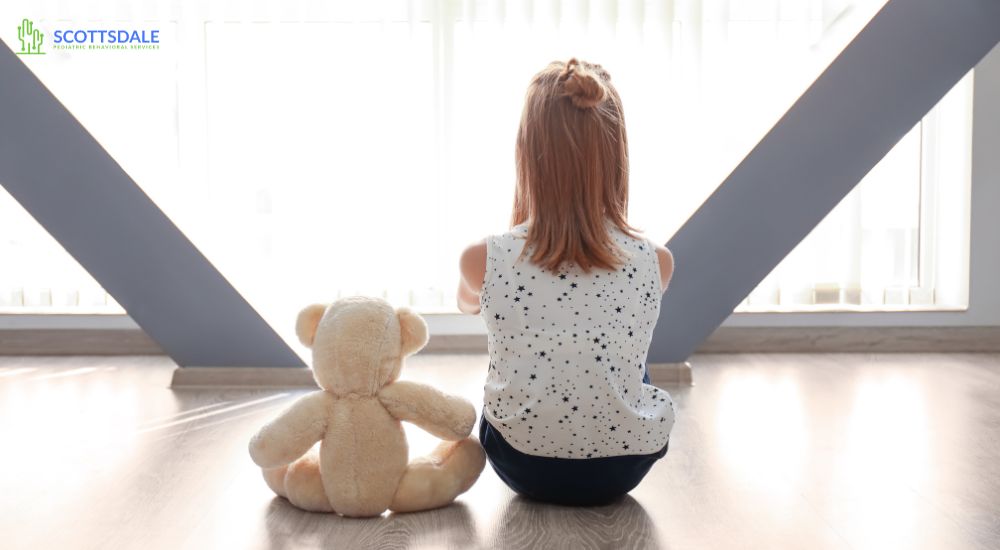Managing Sleep Challenges Among Kids With Autism
Sleep is a fundamental aspect of a child’s development, providing the necessary rest and rejuvenation for physical, emotional, and cognitive well-being.
However, for children with autism spectrum disorder (ASD), sleep challenges are a common and often overwhelming concern.
These sleep difficulties can significantly impact the child and their family’s quality of life.
In this article, we will explore the various sleep challenges autistic kids face and discuss practical strategies for managing and improving their sleep patterns.
Understanding Autism Spectrum Disorder
Before delving into the complexities of managing sleep challenges among kids with autism, it’s essential to have a basic understanding of what autism spectrum disorder is.
Autism is a neurodevelopmental disorder that affects social communication, behavior, and sensory processing.
It is often diagnosed in early childhood, and its characteristics can vary significantly from one individual to another.
While some children with autism have mild symptoms and can function independently, others may have more severe challenges that require extensive support.
Sleep Challenges in Kids with Autism
Children with autism are more likely to experience sleep difficulties compared to their neurotypical peers.
These sleep challenges can manifest in various ways, and they often lead to disrupted sleep patterns, which can affect the overall well-being of the child and their family.
Some common sleep challenges faced by kids with autism include:
Difficulty Falling Asleep:
Many children with autism have a hard time falling asleep, which can result in prolonged bedtime routines and increased frustration for both the child and their parents.
This difficulty may be related to sensory sensitivities, anxiety, or the inability to self-soothe.
Frequent Night Wakings:
Children with autism often experience frequent night wakings, which disrupt their sleep cycles and can lead to sleep deprivation for both the child and their caregivers.
These night awakenings may be caused by sensory sensitivities, gastrointestinal issues, or anxiety.
Irregular Sleep Patterns:
Kids with autism may exhibit irregular sleep patterns, including inconsistent bedtimes and wake times. This lack of routine can make it challenging for them to establish a healthy sleep schedule, which is crucial for good sleep hygiene.
Nightmares and Night Terrors:
Some children with autism are more susceptible to nightmares and night terrors, which can be distressing and lead to a reluctance to sleep.
Nightmares and night terrors may be a result of heightened anxiety or sensory sensitivities.
Gastrointestinal Problems:
Gastrointestinal issues, such as acid reflux, constipation, or diarrhea, are common in children with autism and can significantly disrupt their sleep.
The discomfort caused by these problems can lead to nighttime awakenings and difficulty falling back asleep.
Sensory Sensitivities:
Children with autism often have sensory sensitivities, which can make their sleep environment uncomfortable.
Sensory sensitivities to light, noise, or tactile sensations can lead to restlessness and difficulty staying asleep.
Sleep-Related Disorders:
In some cases, children with autism may also suffer from co-occurring sleep-related disorders such as sleep apnea, restless leg syndrome, or narcolepsy.
Identifying and addressing these disorders is crucial for improving sleep quality.
Impact of Sleep Challenges on Kids with Autism and Their Families
The sleep challenges faced by children with autism have a profound impact on their overall well-being as well as the well-being of their families.
Here are some of the critical consequences:
Behavioral and Emotional Challenges:
Poor sleep quality can lead to increased irritability, anxiety, and behavioral challenges in children with autism.
They may struggle to regulate their emotions and exhibit more challenging daily behaviors.
Impaired Cognitive Function:
Sleep can impair cognitive functioning, including attention, problem-solving, and memory.
This can make it more difficult for children with autism to learn and engage in everyday activities.
Family Stress:
The sleep challenges experienced by children with autism can create significant stress for their families.
Parents and caregivers may experience sleep deprivation, leading to their decreased ability to provide support and care.
Decreased Quality of Life:
For both the child with autism and their family, sleep challenges can result in a decreased overall quality of life.
The constant struggle to achieve restful sleep can lead to physical and emotional exhaustion.
Strategies for Managing Sleep Challenges Among Kids with Autism
Managing sleep challenges in children with autism requires a multifaceted approach that addresses the specific needs and sensitivities of each child.
Here are some effective strategies for improving the sleep patterns of children with autism:
Create a Sensory-Friendly Sleep Environment:
Design a sleep environment that takes into account the child’s sensory sensitivities.
This may involve using blackout curtains, white noise machines, and providing comfortable bedding to create a calming and secure atmosphere.
Establish a Consistent Bedtime Routine:
Consistency is vital in helping children with autism establish healthy sleep patterns.
Create a structured bedtime routine with calming activities, such as reading a book or taking a warm bath, to signal that it’s time to sleep.
Manage Anxiety:
Children with autism may experience anxiety related to sleep.
Teach relaxation techniques, such as deep breathing or progressive muscle relaxation, to help them manage stress and fall asleep more easily.
Address Gastrointestinal Issues:
Consult a healthcare provider to address gastrointestinal problems affecting the child’s sleep.
Treating these issues can significantly improve sleep quality.
Limit Screen Time Before Bed:
The blue light emitted by screens can interfere with sleep.
Encourage a screen-free period before bedtime to help the child wind down and prepare for sleep.
Consider Medication When Necessary:
Sometimes, healthcare providers may recommend medication to help children with autism sleep more effectively.
This should be considered only when other strategies have been exhausted and under the guidance of a medical professional.
Consult a Sleep Specialist:
If sleep challenges persist, consider consulting a sleep specialist or pediatrician with expertise in autism.
They can provide tailored guidance and treatment options.
Monitor Diet and Nutrition:
Pay attention to the child’s diet and nutrition, as certain foods and beverages can affect sleep.
Limit caffeine and sugar intake, especially in the evening, and provide a balanced diet that supports sleep.
Promote Physical Activity:
Encourage regular physical activity during the day to help the child expend energy, which can contribute to better sleep at night.
However, avoid vigorous exercise close to bedtime.
Seek Support:
Parents and caregivers of children with autism facing sleep challenges should seek support from autism advocacy groups, support organizations, and other families who have experienced similar difficulties.
Sharing experiences and advice can be highly beneficial.
Conclusion
Sleep challenges among children with autism can be a significant source of stress for both the child and their family.
Understanding the specific sleep issues that children with autism may face and implementing effective strategies to address these challenges is crucial for their overall well-being and quality of life.
By creating a sensory-friendly sleep environment, establishing a consistent bedtime routine, managing anxiety, and addressing any underlying medical issues, it is possible to improve the sleep patterns of children with autism.
Additionally, seeking support from healthcare professionals, sleep specialists, and help organizations can provide valuable guidance and assistance in managing sleep challenges.
It is essential to recognize that each autistic child is unique, and what works for one may not work for another.
Therefore, a personalized approach considering the child’s needs and sensitivities is critical to helping them achieve restful and restorative sleep.
With the right strategies and support, children with autism can experience improved sleep, leading to better overall health and a higher quality of life for both them and their families.
For further information and support in managing sleep challenges among autistic kids, visit Scottsdale Pediatric Behavioral Services.
They offer a range of resources and expertise to help children with autism and their families navigate the complexities of sleep-related issues.
Frequently Asked Questions (FAQs)
What are common sleep challenges faced by children with autism?
Common sleep challenges include difficulty falling asleep, frequent night wakings, irregular sleep patterns, nightmares and night terrors, gastrointestinal problems, sensory sensitivities, and co-occurring sleep-related disorders.
How can I create a sensory-friendly sleep environment for my child with autism?
You can create a sensory-friendly sleep environment by using blackout curtains and white noise machines, providing comfortable bedding, and addressing any sensory sensitivities your child may have, such as sensitivity to light or noise.
What is the importance of a consistent bedtime routine for children with autism?
A consistent bedtime routine helps signal the child that it’s time to sleep. It can include calming activities like reading a book or a warm bath, promoting security and relaxation.
What should I do if my child with autism experiences anxiety related to sleep?
If your child experiences sleep-related anxiety, consider teaching them relaxation techniques like deep breathing or progressive muscle relaxation to help them manage their anxiety and fall asleep more easily.
When should I consult a healthcare professional or sleep specialist for my child’s sleep challenges?
If sleep challenges persist and other strategies have been exhausted, consulting with a healthcare professional or a sleep specialist is a good idea. They can provide tailored guidance and potential treatment options.
Are there any medications that can help children with autism sleep better?
Sometimes, healthcare providers may recommend medications to help children with autism sleep more effectively. However, this should be considered only when other strategies have been exhausted and under the guidance of a medical professional.
How can I seek support for managing sleep challenges among my child with autism?
You can seek support from autism advocacy groups, support organizations, and other families who have experienced similar difficulties. Additionally, sharing experiences and advice can be highly beneficial in managing sleep challenges.

